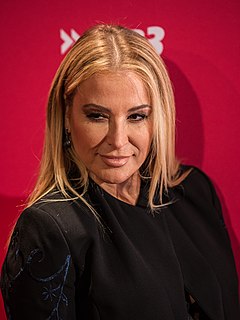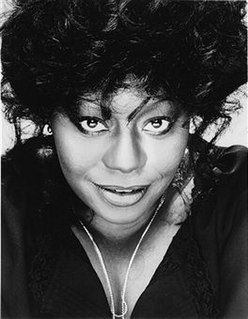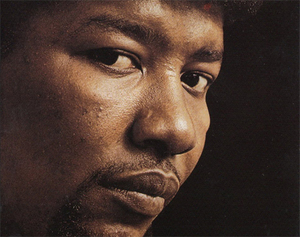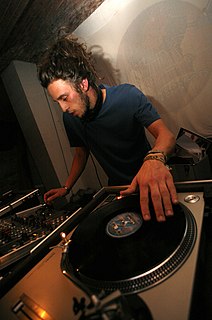This article needs additional citations for verification .(November 2016) (Learn how and when to remove this template message) |
Modern soul is a style of music with associated clothing and dance styles (precursors to the disco era), that developed in Northern England in the early 1970s.

Disco is a genre of dance music and a subculture that emerged in the 1970s from the United States' urban nightlife scene.

Northern England, also known as the North of England or simply the North, is the northern part of England, considered as a single cultural area. It extends from the Scottish border in the north to near the River Trent in the south, although precise definitions of its southern extent vary. Northern England approximately comprises three statistical regions: the North East, North West and Yorkshire and the Humber. These have a combined population of around 14.9 million as of the 2011 Census and an area of 37,331 km2. Northern England contains much of England's national parkland but also has large areas of urbanisation, including the conurbations of Greater Manchester, Merseyside, Teesside, Tyneside, Wearside, and South and West Yorkshire.
Contents
Modern soul developed from the Northern soul scene, when some DJs began looking in record shops of the United States and United Kingdom for something more complex and contemporary. What emerged was a richer sound that was as lyrically and melodically soulful as Northern soul, but more advanced in terms of Hi-Fi and FM radio technology. Another benefit was that unlike Northern soul, it offered a steady stream of new releases. Modern soul records are not necessarily "modern" at any one point in time; some current modern soul favourites are over 30 years old. The records are simply modern-sounding relative to the traditional Northern soul sound.
Northern soul is a music and dance movement that emerged in Northern England and the English Midlands in the late 1960s from the British mod scene, based on a particular style of black American soul music, especially from the mid-1960s, with a heavy beat and fast tempo.

The United States of America (USA), commonly known as the United States or America, is a country comprising 50 states, a federal district, five major self-governing territories, and various possessions. At 3.8 million square miles, the United States is the world's third or fourth largest country by total area and is slightly smaller than the entire continent of Europe. With a population of over 327 million people, the U.S. is the third most populous country. The capital is Washington, D.C., and the most populous city is New York City. Most of the country is located contiguously in North America between Canada and Mexico.

The United Kingdom of Great Britain and Northern Ireland, commonly known as the United Kingdom (UK) or Britain, is a sovereign country located off the north-western coast of the European mainland. The United Kingdom includes the island of Great Britain, the north-eastern part of the island of Ireland, and many smaller islands. Northern Ireland is the only part of the United Kingdom that shares a land border with another sovereign state, the Republic of Ireland. Apart from this land border, the United Kingdom is surrounded by the Atlantic Ocean, with the North Sea to the east, the English Channel to the south and the Celtic Sea to the south-west, giving it the 12th-longest coastline in the world. The Irish Sea separates Great Britain and Ireland. The United Kingdom's 242,500 square kilometres (93,600 sq mi) were home to an estimated 66.0 million inhabitants in 2017.
A large proportion of modern soul's original audience members came from the Northern soul scene, retaining their adoration of underground and rare, independent label soul music. One of the first modern soul clubs was Blackpool Mecca, which was fronted by the DJ Ian Levine. He broke from the Northern soul mould by playing a new release by The Carstairs ("It Really Hurts Me Girl") in the early 1970s. Levine: "Back in England I found this dealer called John Anderson who’d moved from Scotland to Kings Lynn. I told him I wanted this Carstairs record and he’d just had a shipment in from America of 100,000 demo records from radio stations. We went through this collection, me, Andy Hanley, and Bernie Golding, and we found three copies of the Carstairs record. Went back to Blackpool, played the record and changed the whole scene. Blackpool Mecca suddenly became the home of this new Northern soul sound. I would’ve heard this record in 1973, when it was supposedly released, but not obtained it until 1974". [1] Around the same period, Colin Curtis played The Anderson Brothers' "I Can See Him Loving You", and another key modern soul track emerged: Don Thomas' "Come on Train".
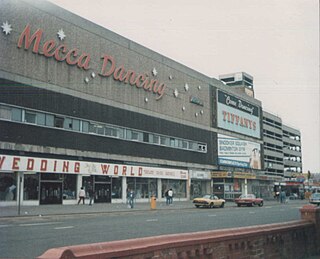
The Blackpool Mecca was a large entertainment venue on Central Drive in the seaside town of Blackpool, Lancashire, in North West England, first opened in 1965. In the 1970s, it was particularly known for The Highland Room, which was a major Northern Soul music venue. From 1977 onwards it was also host to the Commonwealth Sporting Club. The building was closed down in 1980s and was finally demolished in January 2009 to make way for new campus buildings of Blackpool and The Fylde College. However, following an issue with funding B&FC withdrew and as of 2013 the site is planned for residential development.
Ian Geoffrey Levine, is a British songwriter, producer, and DJ. A moderniser of Northern soul music in the UK, and a developer of the style of Hi-NRG, he has written and produced records with sales totalling over 40 million. Levine is also a former fan of the long-running television show Doctor Who.
The Carstairs were an American group of the 1960s and 1970s whose 1973 single, "It Really Hurts Me Girl" is credited with starting the modern soul music scene and genre.
The main protagonists of the two soul genres had a falling-out and went their separate ways, with soul clubs generally siding either with modern or northern. Modern soul became a major force, drawing more people towards the music and its venues. Liverpool, the only major northern city of the West-East swathe of England, had remained largely immune from the Northern soul scene in the 1960s and 1970s, preferring Motown and funk. The city showed itself to be a more fertile area for the modern soul sound.
Despite their initial differences, Northern and modern soul remain inextricably linked genres. Some DJs, such as Richard Searling and "Soul Sam" (Martin Barnfather), have championed both the Northern and modern soul scenes for several decades. Nowadays, most UK soul venues play music from both genres. A Greg Perry track, could immediately follow a track by The Vibrations, a mix that would not have happened in the 1970s. Some venues also have a main room for traditional Northern soul favourites and a separate "modern room" for the newer sound.
